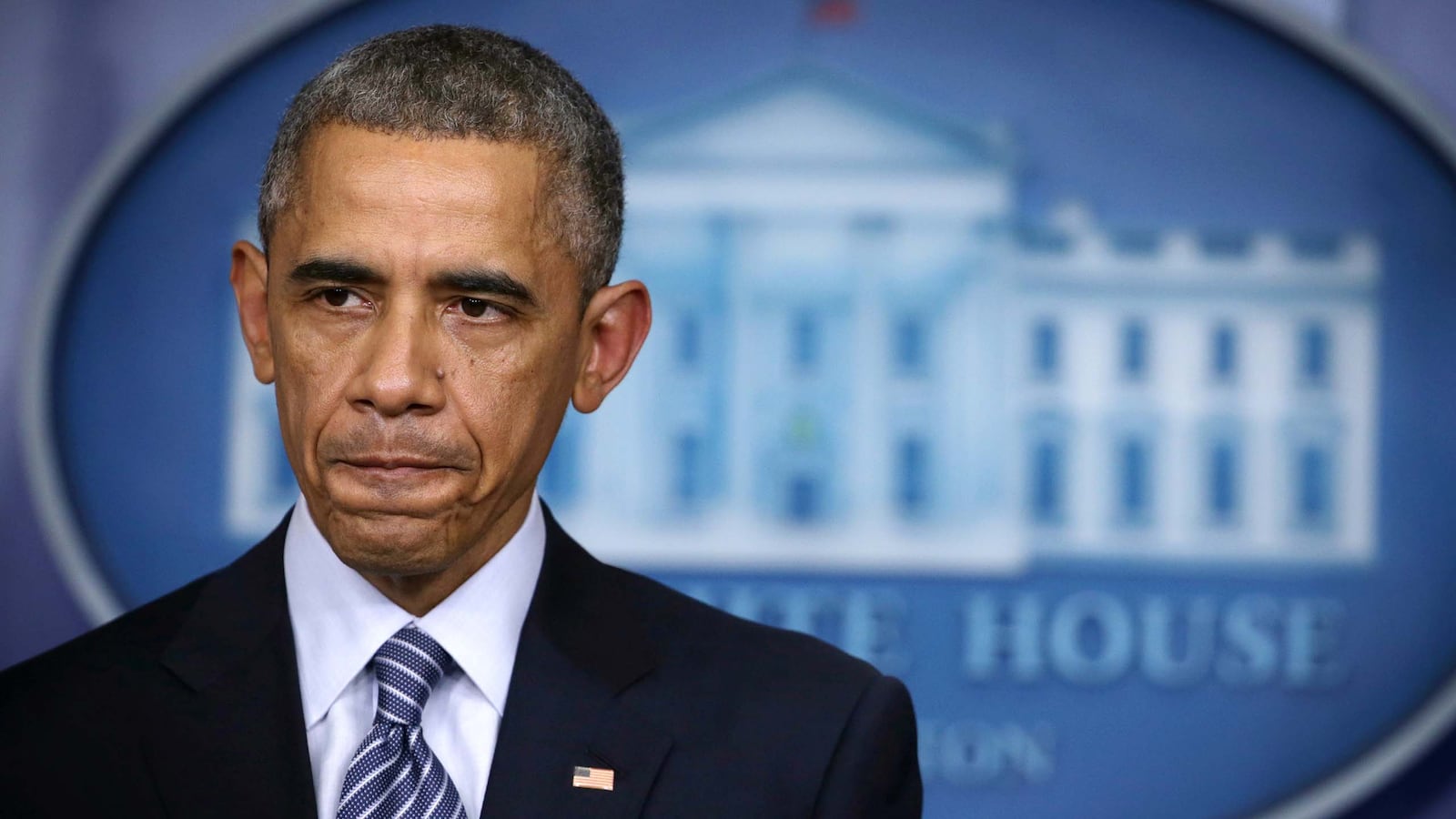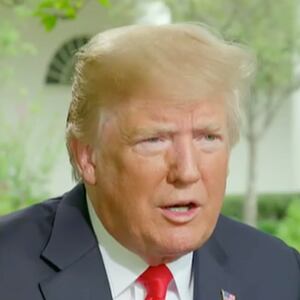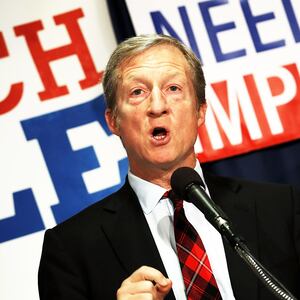To impeach or not to impeach? As Special Counsel Robert Mueller’s investigation appears to approach its culmination, as Donald Trump is shown in court documents to have known about and directed illegal actions, as the Democrats prepare to assume power in the House of Representatives, that is rapidly becoming the question.
Of course, the remarkable fact is that no president in our history has been removed from office by impeachment. And with the incoming Senate even more firmly under Republican control, it would take a series of extraordinary events for Trump to become the first. Impeachment is properly reserved, as the Constitution’s Article 2, Section 4 specifies, for “Treason, Bribery, or other high Crimes and Misdemeanors.” However deplorable has been much of Trump’s conduct, no such high crimes have yet been definitively proved. Unless and until the various investigations produce smoking guns (though the Michael Cohen sentencing memorandum released on late Friday comes may well contain one) it would be far healthier for the country if Trump is removed at the ballot box by the voters in 2020 rather than by an impeachment trial in the Senate.
On that point, I find my thinking somewhat more closely aligned with pro-Trump conservatives who reject the remedy of impeachment than it is with anti-Trump liberals, like the billionaire Tom Steyer, who are urging impeachment now. But whatever one’s view may be, connoisseurs of hypocrisy now have the opportunity to sample some choice delicacies. For it turns out that some of the very same people defending Trump from the specter of impeachment were not long ago hurling the most fantastical charges at Trump’s immediate predecessor and demanding his eviction from the White House.
Exhibits A through Z in any such retrospective can be found in a little noticed 2014 book titled Faithless Execution by the former federal prosecutor Andrew C. McCarthy, now a columnist for National Review, and a regular commentator on FOX News. According to its dust jacket, the volume “builds the political case for President Obama’s impeachment, setting forth the broad range of his high crimes and misdemeanors and willful subversion of the Constitution.”
Faithless Execution begins with an introduction to the political cast and character of its principal villain. The formative background of “Barack Hussein Obama,” we are instructed, is the “left-wing fever swamp of Chicago’s ‘community organizing.’” The term “community organizing,” argues McCarthy, is a misnomer. In fact, what Obama called community organizing was nothing more than “a gussied-up term for systematic rabble-rousing” that aimed at the “pursuit of raw power.”
In this telling, our 44th president began his career of radicalism by working to register Chicago residents—horror of horrors—to vote. This had the consequence of bringing into the political process “thousands of ne’er-do-wells,” McCarthy’s unembarrassed euphemism, evidently, for inner-city blacks. From there Obama ascended to the board of sundry left-wing foundations, which put him in position to steer funding to “notorious” practitioners of “direct action.” This mode of political activity, according to McCarthy, involved “sheer extortion,” aiming over the short term “to coerce capitulation” in whatever controversy was of the moment, and over the long term, “to demoralize civil society,” convincing any and all who stood in the way that reliance on the normal processes of law would be “unavailing.”
It was this brand of Chicago lawlessness, writes McCarthy, that Obama imported to the White House, using the extraordinary powers of the presidency in the attempt to hollow out and then destroy the American political order from within. The president and his subordinates, in this telling, “monotonously invoke[d] ‘the rule of law’ even as they use[d] law as a cudgel, [ran] circles around it, and [rode] roughshod over it.” Indeed, in seeking to transform America according to his radical vision, the president, wrote McCarthy, had been “violating his oath to preserve the Constitution, shredding the separation of powers, using the vast bureaucracy to repress his political opponents, and misleading the public about both his objectives and his failures.”
Though the remedy of impeachment, McCarthy at several junctures acknowledges, is “impractical as a response to all but the most egregious abuses of executive power,” Obama, he found, had engaged in just such abuses. Indeed, averring that the “legal case for impeachment is very strong,” Faithless Execution offered for consideration by Congress draft “Articles of Impeachment.” In them, Obama stands accused by McCarthy of having committed an extensive miscellany of high crimes and misdemeanors. Included in the indictment’s broad sweep is such conduct as having “engaged in diplomatic negotiations that facilitate Iran’s pursuit of nuclear weapons despite his oft-repeated pledge that the United States, under his leadership, would prevent Iran from acquiring nuclear weapons”; “embarked on an invidious felony prosecution against Dinesh D’Souza for allegedly illegal contributions to a Senate campaign”; “willfully defrauded the American people in the enactment and implementation of Obamacare”, and “conspired with foreign elements to reduce the constitutional liberties of the American people.”
McCarthy’s compilation of Obama’s criminal deeds also encompassed such disparate offenses as “instigating an undeclared, unauthorized and unprovoked war” in Libya; unilaterally offering benefits to the DREAMers; and “reckless maladministration” in carrying out the terms of the Clean Air Act. All told, McCarthy’s draft indictment of Obama consists of seven separate and highly detailed articles of impeachment, spanning 60 pages of his 234-page book.
I have no special brief for Barack Obama. Indeed, as a senior adviser to the Mitt Romney for President campaign, I toiled hard to defeat him in 2012. But to characterize the legal case for Obama’s impeachment as “very strong” is pure and simple ludicrous.
Indeed, McCarthy’s case is constructed not out of historical and legal precedents bearing on impeachment but almost entirely out of boilerplate conservative objections to Obama’s policies. Though the book offers a potted excursion through historical aspects of the Constitution’s impeachment clause, it never enters the territory of serious legal and constitutional analysis of any of the supposedly impeachment-worthy transgressions it sets out.
The territory from which it never departs, on the other hand, is that of the political screed. McCarthy’s charge sheet appears to arise from a “fever swamp” of the fringe right, the province of bigoted extremists like the white nationalist congressman Steve King of Iowa, whom McCarthy in his book praises as someone who “exerted himself mightily in search of practical ways to combat the Obama administration’s lawlessness” and a generally “exceptional” guy.
Nothing transpired in the Obama years that comes close to supporting McCarthy’s claim in Faithless Execution that our 44th president engaged in “rampant” violations of law and derelictions of duty, which in their sum total formed “a web of administration scandals that would make Richard Nixon and John Mitchell blush.”
Nor is there anything in the record that would remotely sustain McCarthy’s preposterous contention that if Obama were to have gotten his way, our country would no longer be “based on liberty, with the citizen guaranteed protection from oppressive government” and would instead descend into a tyranny in which the individual citizen is a cog in a “centrally planned, punctiliously regulated society, enjoying only as much liberty as the government deigns to grant him.”
Such warnings, wholly detached from evidence and which conjure up an unrecognizable alternative reality, hark back to the conspiratorial fulminations in the late 1950s of the John Birch Society. As such anti-Obama hysteria makes plain, even before Donald Trump entered center stage some on the American right had begun to drink deeply from the poisonous waters of a dark past.
In and of itself, of course, far-right extremism has no bearing on the validity or lack thereof of the various arguments that McCarthy has today been steadily advancing in the pages of National Review to discredit the Mueller investigation and/or to defend Donald Trump. While he hasn’t gone so far as to mirror Trump by calling the probe a “hoax” or a “witch hunt,” he has been remarkably generous in his assessments of Trump’s most blatant transgressions.
Trump’s appointment of Matthew Whitaker as acting attorney general offers a typical case in point. As is obvious to anyone with eyes to see, Trump skipped over Senate-confirmed higher-ranking officials in the Department of Justice hierarchy and installed Whitaker in the nation’s highest law enforcement slot solely because of Whitaker’s repeated publicly expressed denigration of the Mueller investigation, which he now has the power to supervise and harass or even shut down.
But, mirabile dictu, to McCarthy this wholly unqualified individual—someone closely linked to a multi-million dollar fraud currently under investigation by the FBI and United States Postal inspectors, and someone who holds crackpot views about the law, including the contention that Marbury v. Madison, a building block of our constitutional order, is one of the worst decisions in Supreme Court history—is not a scammer at all but a legal giant, someone “well credentialed” who “appears to be an excellent choice to assume the duties of attorney general.”
To be sure, even the most absurd arguments advanced by McCarthy deserve to be answered on their merits. But by consistently inculpating a Democratic president for imagined high crimes while assiduously laboring to exculpate a Republican president for conduct that regularly trespasses on fundamental constitutional norms, McCarthy displays a double standard that is extraordinary in its brazenness.
As Trump’s presidency unravels and impeachment becomes the subject of discussion in widening circles, one is left questioning if McCarthy’s prolific writings in National Review and his commentary on Fox News are the product of dispassionate legal analysis or something far less savory.
Gabriel Schoenfeld is the author of, among other books, Necessary Secrets: National Security, the Media, and the Rule of Law.








